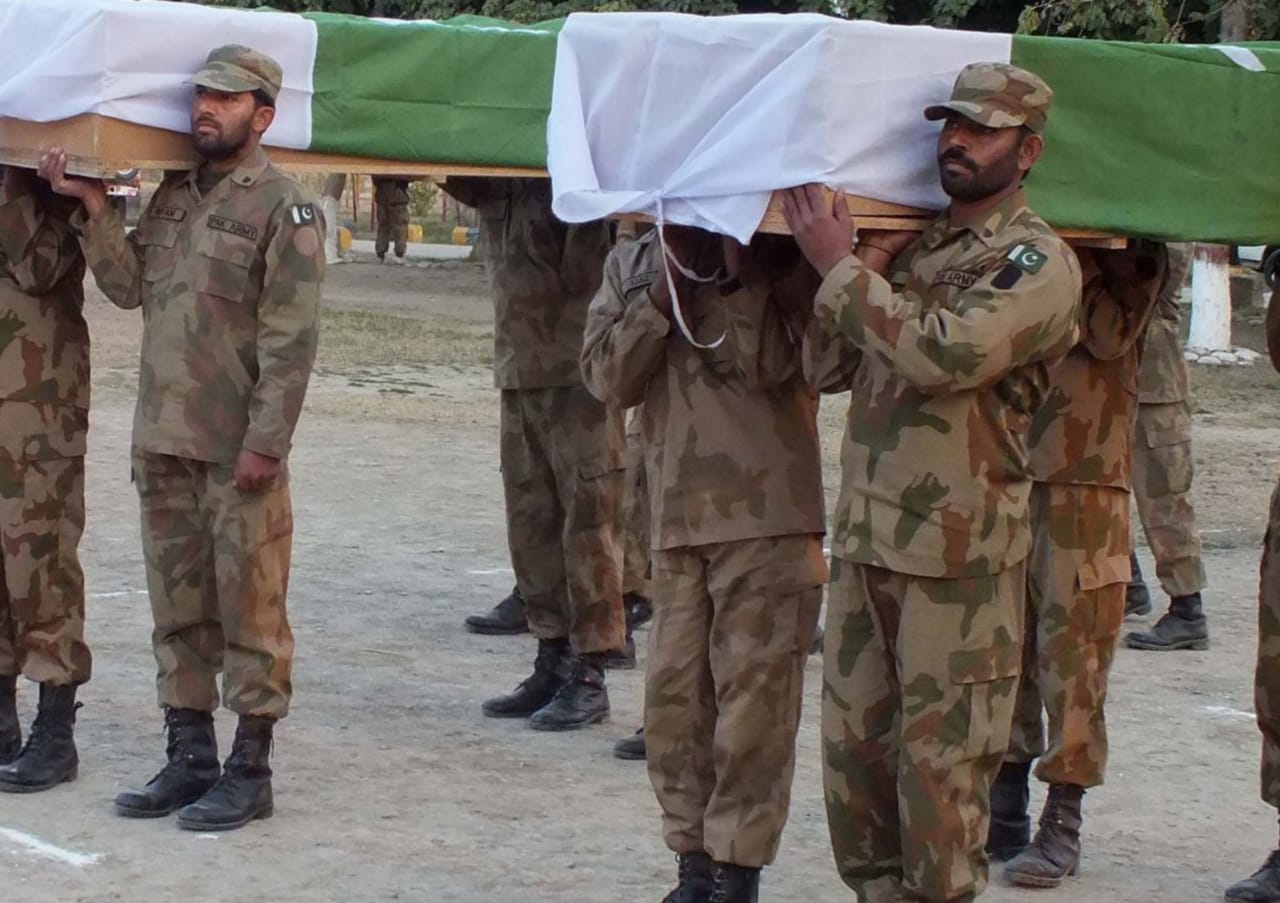
Quetta:
At least 20 Pakistani soldiers were killed in a coordinated series of rebel attacks across Balochistan over a 12‑hour period on 16 July 2025, officials and media reports confirmed. Baloch separatist militants launched multiple ambushes targeting military checkposts and convoys in districts including Awaran, Quetta and Kalat.
A local security source cited by Moneycontrol reported: “Rebels targeted military checkposts in Awaran, Quetta, and Kalat districts, killing 20 security personnel, including a senior officer Major Ravi Nawaz”. Alongside Major Nawaz, several other soldiers died in these attacks on multiple outposts.
According to the report, the rebels struck under the cover of night, opening fire on checkpoints and military vehicles. In Kalat district specifically, militants ambushed a bus carrying troops along the Quetta–Karachi highway, killing and wounding several on board. The exact number of casualties in each incident remains unverified, as authorities have not released an official breakdown.
Following the assaults, security forces initiated massive search operations in affected areas. However, the operations were met with resistance, and communication blackouts, including the suspension of mobile networks, initially hampered independent verification of the events.
Responsibility for the attacks remains unclaimed. Yet analysts and local officials suspect involvement of Baloch insurgent groups such as the Baloch Liberation Front and Baloch Liberation Army. Recent militant offensives, including “Operation Baam” conducted between 9–11 July 2025, saw rebel groups claim responsibility for killing up to 50 security personnel and wounding scores more. These earlier spill‑over operations targeted military bases, convoys, and telecom infrastructure, signalling a string of escalating actions.
The striking violence over 16 July follows a disturbing pattern of intensified militant warfare in Balochistan. On 6 May, a roadside bomb in Machh District killed seven soldiers with an improvised explosive device, also claimed by the Baloch Liberation Army. Earlier, on 11 March, insurgents hijacked the Jaffar Express, taking hostages before releasing them, although that incident chiefly affected civilians.
These recent deadly ambushes have revived concerns over the Pakistani military’s ability to secure remote regions. Balochistan, the country’s largest and least populated province, is grappling with a long‑running separatist insurgency fuelled by demands for greater political autonomy and equitable distribution of its natural resource wealth.
While Islamabad has blamed external interference for stoking rebellion, Baloch leaders attribute violence to decades of systemic neglect and resource exploitation. Military operations in recent weeks, including efforts to dismantle rebel hideouts and restore mobile connectivity, signal the government’s attempt to regain control in strategic areas.
The 20 deaths mark one of the deadliest single-day tolls for the armed forces in months. As authorities comb affected regions, pressure is mounting on officials to improve intelligence gathering and reinforce security along remote highways and outposts.
The rapid sequence of attacks underscores the potent threat posed by separatist guerrilla tactics in Balochistan. While security forces renew counter‑insurgency efforts, analysts warn that absent meaningful political dialogue and development investment, militant violence may continue to escalate.
Further updates from official military sources are expected as investigations progress and casualty figures are clarified across the province.